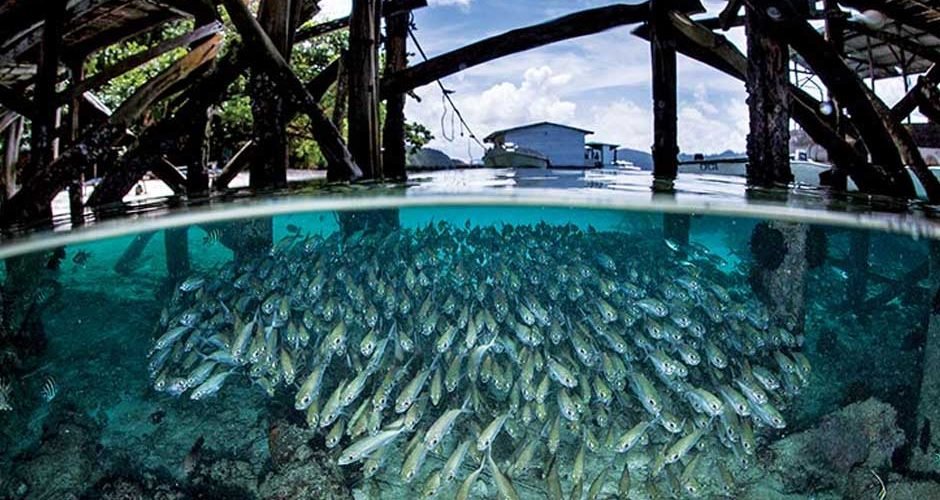Using docks in our marinas, rivers, and lakes can provide an important resource for recreation and fishing. But along with the convenience comes a responsibility to protect the underlying environment that supports aquatic life. While boat docks are essential to many people’s enjoyment of these bodies of water, their impact on marine life should not be overlooked. Dock construction has raised numerous questions about marine construction, docks, or lumber and their impact on marine life. Overweighted stationary floating structures built onto fragile ecosystems without proper consideration have led to serious environmental concerns. Understanding how boat docks affect marine life is key to minimizing damage while enjoying your favorite waterway activities. We’ll cover all you need to know about the impacts of boat docks on marine life so you can make sure your time spent near or at the dock respects wildlife in its natural habitat.
Table of Contents
Overview Of Boat Docks And Their Impact On The Environment
Boat docks have become essential for boating enthusiasts and waterfront property owners alike. Not only do they provide a convenient place to store boats, but they also offer easy access to waterways. However, whether in freshwater or saltwater, boat docks can significantly impact the environment.
The construction and maintenance of boat docks can disturb delicate ecosystems and contribute to erosion, sedimentation, and pollution. Additionally, boats that dock at these facilities may release harmful substances such as sewage and oil into the water. While boat docks are undoubtedly convenient, it’s important to consider their impact and take appropriate measures to mitigate their environmental effects.
The Effects Of Boat Docks On Marine Life
Boat docks are crucial for boaters to secure their vessels and access the water. However, these structures can have significant impacts on marine life. Docks can change the water flow patterns, leading to erosion and sediment build-up. The shadow cast by the docks can disturb the growth of seagrasses, vital habitats for fish and other marine organisms.
Additionally, the installation of docks can disrupt aquatic ecosystems, causing a decline in biodiversity. While they provide a practical purpose, it’s essential to recognize the environmental consequences of the construction of boat docks in the marine environment.
Positive Solutions For Minimizing Environmental Damage
Boat docks have become a common sight along the coastline, providing access to recreational activities and home to boats and marine equipment. While these structures offer many benefits, they can also cause significant environmental damage, from disrupting natural habitats to releasing harmful chemicals into the water.
However, there are positive solutions available to minimize this damage. These include dock construction using eco-friendly materials, planting native vegetation around the dock, and implementing proper waste management practices. By taking these steps, we can ensure that boat docks continue enhancing our enjoyment of the water while minimizing their environmental impact.
Guidelines For Installing Boat Docks In An Environmentally Safe Way
We understand the importance of preserving the environment for future generations. That’s why we strongly recommend following guidelines for installing boat docks that ensure the safety of our waters and marine life. Simple steps such as avoiding sensitive areas and using sustainable materials can go a long way in minimizing the impact of building on our waterways. Adhering to these guidelines ensures that our boating adventures are safe and positively impact our beautiful environment.
Benefits Of Using Eco-Friendly Materials When Constructing A Dock
Boat docks provide a platform for spending time on the water and enjoying outdoor activities with family and friends. However, the materials used to construct them can harm the environment. By choosing eco-friendly materials, boat owners can minimize the impact of their docks on the ecosystem and take steps towards a sustainable future.
With technological advancements, eco-friendly options for constructing boat docks are readily available. Utilizing these materials not only benefits the environment but also improves the longevity and safety of the dock. By opting for sustainable materials, boat owners can protect the environment and continue to enjoy their docks for years.
How To Restore Ocean Habitats Damaged By Boat Docks
Our oceans are valuable resources that need to be protected. Improper installation of boat docks can significantly damage these habitats, so restoration is crucial. Several strategies can be employed to restore these habitats. Some of these strategies include creating artificial reefs, planting new vegetation, and removing invasive species.
Artificial reefs can provide shelter for marine life while planting new vegetation can help to replenish important food sources. Removing invasive species can also help to restore the balance of the ecosystem. By employing these restoration strategies, we can help to bring our oceans back to their natural, thriving state. We must take action to protect these habitats for future generations to enjoy.
Final Thoughts
In sum, boat docks can have positive or negative implications for marine life and ecosystems. Ensuring that any dock construction protects ocean habitats and preserves nature’s beauty is important. Boaters should consider doing their part by looking into eco-friendly materials when constructing a dock and following best practices to minimize environmental harm. Also, special attention should be paid to those locations plagued by prior accidents or negligence, as these problems require careful solutions to remediate degraded ecosystems and biodiversity. Ultimately, we are responsible for finding ways to coexist peacefully with nature by taking a sustainable approach to managing boat docks. We owe it to many species living in the world’s oceans — and ourselves — to protect their homes so that generations can marvel at the majestic underwater scenery we are privileged today.





